SK Group to invest around 12 billion US dollars in “green” industries by 2025
South Korea’s third-largest conglomerate SK Group plans to invest around 12 billion US dollars in so-called green industries over the next five years. This is the company’s response to the growing awareness of the global climate crisis and its attempt to expand its business areas into environmentally friendly industries. Pulsenews Korea reported in mid-October that the investment will be made through the corresponding subsidiary SK Inc. Within the group of companies, the equivalent of 7.9 billion US dollars is to be invested in alternative energy, 3.3 billion US dollars in clean industrial processes, 504 billion US dollars in CO₂ processing and 260 million US dollars in sustainable food. The potential growth of the green industry sector would mean greater demand for solar and wind power equipment, among others, much of whose production requires KC certification and KC certification for explosive products.
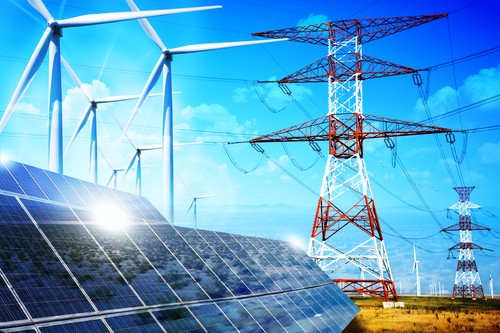
A previously published announcement by SK Group to invest around 15.5 billion US dollars in hydrogen technologies referred to joint financing by SK and external partners. The now announced investment in the green sector will be done completely independently by SK. Senior Vice President of SK’s Green Investment Centre Kim Moo-hwan said the group has already invested the equivalent of US$2.27 billion in green industries this year. Of all industries, SK has the most interest in alternative energy. These include hydrogen and fuel cells, energy distribution and renewable energy. Experts estimate that the global alternative energy market will double by 2025. In addition, SK is expanding its involvement in sustainable foods such as meat alternatives, lab-grown meat and protein from microbial fermentation.
South Korea is considered one of the most important and innovative industrial nations in the world. To gain market access to this highly technological country, products imported into South Korea must be tested and certified. The KC mark or certificate is roughly equivalent to the European CE mark and applies to 730 different products. MPR International GmbH has solid experience in Korea certification and competent local partners. We will be pleased to advise you without obligation about the scope and procedure of a Korea certification.
If you need assistance or have any questions regarding Korean certifications like KC, KC EMC, KCs or KCs for explosion safety products, feel free to contact us any time.
Tel.: +49-69-2713769259
Email: info@korea-certification.com
Urgent questions?
Please do not hesitate to contact us via chat. You will find the chat window at the bottom right of each page (if this is not visible, please check your browser settings).
For more information you can download our free brochure “Korea Certification Made Easy – The Booklet“.
Sales of eco-cars in South Korea pass 200,000 mark
The number of eco-friendly vehicles sold in South Korea passed the important 200,000-unit mark for the first time in September, Pulsenews reports. Thanks to generous government subsidies and infrastructure expansion, electric vehicles now account for 15 per cent of all newly registered passenger cars. According to data analysed by local market tracker Car is You Data Research, the number of newly registered electric vehicles between January and September is 202,536 units. The total share of EVs measured by registration figures is 15.6 per cent, an increase of 4.7 per cent compared to the same period last year. This is the highest share to date since the first electric car was launched in 2013. The total number of EVs reached 100,000 in May 2020. For the production of eco cars, the import of materials, components and equipment is very important. In this regard, most products must undergo KC certification in order to be approved for the Korean market.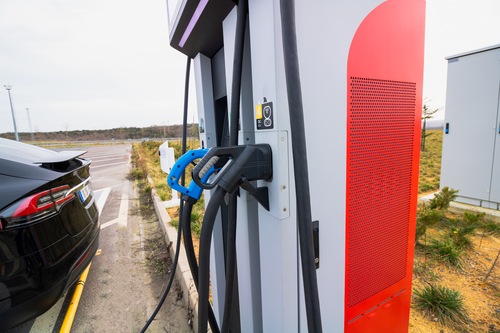 Sales figures for each category, hybrids and pure EVs were 133,513 and 69,023 respectively at the end of September, up 31.5 and 94 per cent year-on-year. The most popular brand for EVs in South Korea was Hyundai with 76,786 vehicles sold followed by Kia with 75,533. Imported vehicles from different manufacturers such as Mercedes-Benz, BMW and Volvo were together around 10,000 vehicles. Experts expect sales figures to increase further in the coming months as manufacturers launch numerous new models in the fourth quarter. Analysts attribute the rise in EV sales largely to generous government subsidies for environmentally friendly vehicles and increased investment by carmakers to build more charging stations.
South Korea is considered one of the most important and innovative industrial nations in the world. To gain market access to this highly technological country, products imported into South Korea must be tested and certified. The KC mark or certificate is roughly equivalent to the European CE mark and applies to 730 different products. MPR International GmbH has solid experience in Korea certification and competent local partners. We will be pleased to advise you without obligation about the scope and procedure of a Korea certification.
If you need assistance or have any questions regarding Korean certifications like KC, KC EMC, KCs or KCs for explosion safety products, feel free to contact us any time.
Tel.: +49-69-2713769259
Email: info@korea-certification.com
Urgent questions?
Please do not hesitate to contact us via chat. You will find the chat window at the bottom right of each page (if this is not visible, please check your browser settings).
For more information you can download our free brochure “Korea Certification Made Easy – The Booklet“.
Sales figures for each category, hybrids and pure EVs were 133,513 and 69,023 respectively at the end of September, up 31.5 and 94 per cent year-on-year. The most popular brand for EVs in South Korea was Hyundai with 76,786 vehicles sold followed by Kia with 75,533. Imported vehicles from different manufacturers such as Mercedes-Benz, BMW and Volvo were together around 10,000 vehicles. Experts expect sales figures to increase further in the coming months as manufacturers launch numerous new models in the fourth quarter. Analysts attribute the rise in EV sales largely to generous government subsidies for environmentally friendly vehicles and increased investment by carmakers to build more charging stations.
South Korea is considered one of the most important and innovative industrial nations in the world. To gain market access to this highly technological country, products imported into South Korea must be tested and certified. The KC mark or certificate is roughly equivalent to the European CE mark and applies to 730 different products. MPR International GmbH has solid experience in Korea certification and competent local partners. We will be pleased to advise you without obligation about the scope and procedure of a Korea certification.
If you need assistance or have any questions regarding Korean certifications like KC, KC EMC, KCs or KCs for explosion safety products, feel free to contact us any time.
Tel.: +49-69-2713769259
Email: info@korea-certification.com
Urgent questions?
Please do not hesitate to contact us via chat. You will find the chat window at the bottom right of each page (if this is not visible, please check your browser settings).
For more information you can download our free brochure “Korea Certification Made Easy – The Booklet“.
South Korea still depends heavily on imported robot components
Business Korea reports new statistics showing that the country remains heavily dependent on imports of robot components. Many components for the robotics industry are provided with f.e. KC certifications and KCs certifications by foreign manufacturers according to K standards in order to obtain market access for South Korea, and are imported accordingly. Analysing data from 2018, the report found that 57 per cent of robots used in manufacturing and services were imported components. Although South Korea can claim the highest number of robots per 10,000 workers, its dependence on imported components has only slightly decreased from 60 per cent in 2016, Lee Sung-man said. The country is particularly dependent on components for factory robots, at 61.1 per cent. The supply of domestically produced components is 14.8 per cent for motors, 24.3 per cent for software and 24.9 per cent for sensors. For robots in the business services sector and in the private sector, the dependence on imported components is 56.3 and 53.5 per cent, respectively. On average, servo motors and decelerators, which normally account for the largest share of robot costs, are 29.6 per cent sourced from Korea. The South Korean market for robot components was US$119.8 million for exports and US$181.8 million for imports in 2019.
South Korea is considered one of the most important and innovative industrial nations in the world. To gain market access to this highly technological country, products imported into South Korea must be tested and certified. The KC mark or certificate is roughly equivalent to the European CE mark and applies to 730 different products. MPR International GmbH has solid experience in Korea certification and competent local partners. We will be pleased to advise you without obligation about the scope and procedure of a Korea certification.
If you need assistance or have any questions regarding Korean certifications like KC, KC EMC, KCs or KCs for explosion safety products, feel free to contact us any time.
Tel.: +49-69-2713769259
Email: info@korea-certification.com
Urgent questions?
Please do not hesitate to contact us via chat. You will find the chat window at the bottom right of each page (if this is not visible, please check your browser settings).
For more information you can download our free brochure “Korea Certification Made Easy – The Booklet“.
The country is particularly dependent on components for factory robots, at 61.1 per cent. The supply of domestically produced components is 14.8 per cent for motors, 24.3 per cent for software and 24.9 per cent for sensors. For robots in the business services sector and in the private sector, the dependence on imported components is 56.3 and 53.5 per cent, respectively. On average, servo motors and decelerators, which normally account for the largest share of robot costs, are 29.6 per cent sourced from Korea. The South Korean market for robot components was US$119.8 million for exports and US$181.8 million for imports in 2019.
South Korea is considered one of the most important and innovative industrial nations in the world. To gain market access to this highly technological country, products imported into South Korea must be tested and certified. The KC mark or certificate is roughly equivalent to the European CE mark and applies to 730 different products. MPR International GmbH has solid experience in Korea certification and competent local partners. We will be pleased to advise you without obligation about the scope and procedure of a Korea certification.
If you need assistance or have any questions regarding Korean certifications like KC, KC EMC, KCs or KCs for explosion safety products, feel free to contact us any time.
Tel.: +49-69-2713769259
Email: info@korea-certification.com
Urgent questions?
Please do not hesitate to contact us via chat. You will find the chat window at the bottom right of each page (if this is not visible, please check your browser settings).
For more information you can download our free brochure “Korea Certification Made Easy – The Booklet“.
Hyosung Group and Linde Korea to build hydrogen plant in Ulsan
The groundbreaking ceremony for the hydrogen liquefaction plant took place on 21 June in Ulsan with the participation of the two partners, Hyosung Heavy Industries and Linde Korea. In attendance were the chairmen of Hyosung and Linde, as well as the mayor of Ulsan city and Korea’s vice minister of trade. During the ceremony, Hyosung and Linde spoke of their shared vision to create a CO2-neutral South Korea through the application of hydrogen technology. Linde Hydrogen Energy, a joint venture between Hyosung and Linde, is responsible for the construction of the plant. When completed, the plant, which will be the largest of its kind in the world, will have a capacity of 13,000 tonnes of liquid hydrogen and is scheduled to start operations in 2023. In addition, Hyosung Heavy Industries will invest the equivalent of around 858 million US dollars in the expansion of liquid hydrogen production capacities over the next five years. A capacity of 39,000 tonnes of liquid hydrogen has been named as the target. Such large-scale projects are supported by extended supply chains; components, equipment and machinery are largely imported internationally. When imported, many products must have KGS factory registration or KCs certification for explosion-proof products to be approved under Korean regulations.
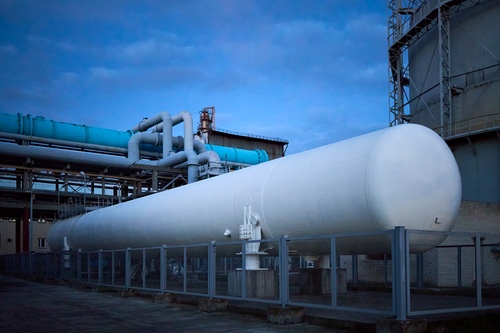
South Korea is considered one of the most important and innovative industrial nations in the world. To gain market access to this highly technological country, products imported into South Korea must be tested and certified. The KC mark or certificate is roughly equivalent to the European CE mark and applies to 730 different products. MPR International GmbH has solid experience in Korea certification and competent local partners. We will be happy to advise you on the scope and procedure of a Korea certification without obligation.
If you need assistance or have any questions regarding Korean certifications like KC, KC EMC, KCs, KGS factory registration or KCs for explosion safety products, feel free to contact us any time.
Tel.: +49-69-2713769259
Email: info@korea-certification.com
Urgent questions?
Please do not hesitate to contact us via chat. You will find the chat window at the bottom right of each page (if this is not visible, please check your browser settings).
For more information you can download our free brochure “Korea Certification Made Easy – The Booklet“.
Coupang’s revenue up by more than 50 per cent
US-listed e-commerce giant Coupang Inc recently reported its highest-ever quarterly revenue. On 12 August, the company, which is also known as the “Amazon of South Korea”, reported that its revenue reached US$4.48 billion in the second quarter of this year. Compared to the same period last year, this represents an increase of 71 per cent. Coupang’s revenue has grown steadily by at least 50 per cent for 15 consecutive quarters since the third quarter of 2017. Analysts relate the strong growth to both rising active customer numbers and higher average spend per customer. The number of active customers reached 17 million last quarter, up 26 per cent from the first quarter of 2021, while the average spend per customer was $263 in the second quarter, up 36 per cent from the previous quarter. Among the most successfull product categories were electronics, appliances and clothing. Many products, especially in the electronics category, need mandatory KC certification in order to be allowed to be sold and used on the Korean market.
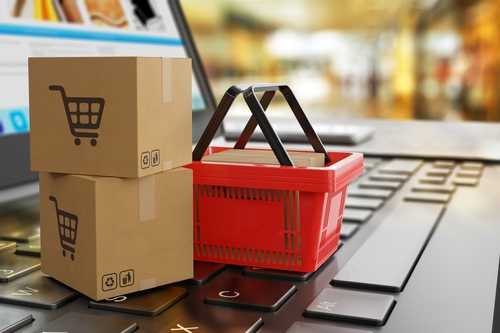
Coupang is a South Korean e-commerce company based in Seoul, as well as a subsidiary in Delaware, US. Founded in 2010, the company rose to become the largest online marketplace in South Korea through expansion. As part of the expansion of its business areas, the video streaming service Coupang Play was founded. Due to the company’s position in the market and size, Coupang is also often referred to as the “Amazon of South Korea”. To grow further in online retail, Coupang invested a total of US$120 million in fresh food delivery and food delivery service Coupang Eats during the second quarter. Through the integration and strong growth of these businesses, Coupang hopes to save on fixed costs and, as a result, offer customers attractive prices for the goods and services.
South Korea is considered one of the most important and innovative industrial nations in the world. To gain market access to this highly technological country, products imported into South Korea must be tested and certified. The KC mark or KC certificate is roughly equivalent to the European CE mark and applies to 730 different products. MPR International GmbH has solid experience in Korea certification and competent local partners. We will be pleased to advise you without obligation about the scope and procedure of a Korea certification.
If you need assistance or have any questions regarding Korean certifications like KC, KC EMC, KCs or KCs for explosion safety products, feel free to contact us any time.
Tel.: +49-69-2713769259
Email: info@korea-certification.com
Urgent questions?
Please do not hesitate to contact us via chat. You will find the chat window at the bottom right of each page (if this is not visible, please check your browser settings).
For more information you can download our free brochure “Korea Certification Made Easy – The Booklet“.
LG Chem invests US$8.7 billion in batteries as well as renewable and biological materials
South Korea’s leading chemical manufacturer, LG Chem Ltd, announced in mid-July that it would invest around 8.7 billion US dollars in battery materials as well as the renewable and bio sector to expand its business activities in the “green” sector. The company also announced that it is intensively looking for partners, acquisition candidates and joint ventures to achieve sustainable growth in the aforementioned three growth markets. LG Chem Vice Chairman Shin Hak-cheol said during an online press conference about the investment plans that they are no longer a traditional petrochemical company. Instead, he wants to turn LG Chem into a material and raw material manufacturer and open up new growth markets. To achieve this, he said, the company will orient its business units towards sustainable growth, using the so-called ESG standards. Equipment for processing of raw materials is an increasingly growing market in Korea. Introduction of corresponding components and products in many cases require KC certification or also KCs certification for explosion-proof products (also called KOSHA).
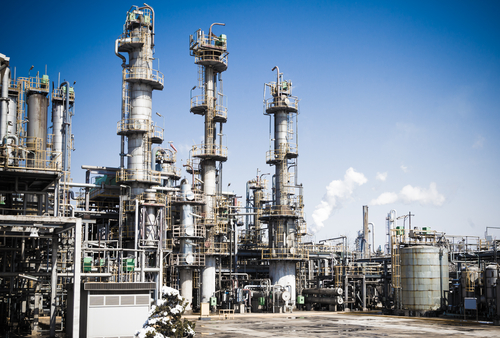
Hak-cheol went on to say that more than 30 joint venture and acquisition projects were currently in the pipeline and that his company expects to report significant progress as early as the second half of this year. LG’s announcement follows a whole wave of business in South Korea to accelerate their efforts to transform into green businesses. Back in early July, SK Innovation Co, a petroleum and batteries company, said it would invest about $26.5 billion in green projects by 2025. Lotte Chemical Corp. is investing US$3.78 billion in hydrogen projects as a new business while turning away from its main petrochemicals business.
Regarding LG Chem’s latest announcement, it will invest about 5.15 billion US dollars in the e-mobility sector through its subsidiary LG Energy Solution Ltd. This will involve expanding production facilities for battery materials including cathodes, separators and carbon nanotubes (CNTs). LG expects the market for battery-related materials to increase threefold to 85 billion US dollars by 2026. LG will invest another US$5.78 billion in biotechnology, recycling and renewable materials. LG Chem’s pharmaceutical division also has promising candidates in development for the treatment of diabetes and cancer. The funds for all these investments will be raised through South Korea’s largest-ever IPO. Later this year, LG Energy Solutions is to be floated on the stock market for more than 8.58 billion US dollars. LG Chem will remain the majority shareholder with 70 to 80 percent of the shares.
South Korea is considered one of the most important and innovative industrial nations in the world. In order to gain market access to this highly technological country, products imported into South Korea must be tested and certified. The KC mark or certificate is roughly equivalent to the European CE mark and applies to 730 different products. MPR International GmbH has solid experience in Korea certification and competent local partners. We will be happy to advise you on the scope and procedure of a Korea certification without obligation.
If you need assistance or have any questions regarding Korean certifications like KC, KC EMC, KCs or KCs for explosion safety products, feel free to contact us any time.
Tel.: +49-69-2713769259
Email: info@korea-certification.com
Urgent questions?
Please do not hesitate to contact us via chat. You will find the chat window at the bottom right of each page (if this is not visible, please check your browser settings).
For more information you can download our free brochure “Korea Certification Made Easy – The Booklet“.
Government approves trial of hydrogen-powered tram in South Korean city
A hydrogen-electric-powered tram developed by Hyundai Rotem will be trialled in the southeastern industrial and port city of Ulsan from 2023 as part of a government programme to promote hydrogen-powered trains. Hyundai Rotem is a subsidiary of the South Korean Hyundai Group and produces wagons and locomotives. The fuel cells used to power the trams come from the automotive industry and are modified for use in trains. To this end, the Ulsan city government announced that it had received final approval from the Ministry of Trade, Industry and Energy to proceed with the project. The trams used for testing are equipped with a 400 kilowatt fuel cell module and can travel up to 200 kilometres on one tank of fuel at a maximum speed of 70 km/h. Construction components of such transport vehicles often require KC approval for import and use in Korea to guarantee that they meet Korea’s high quality standards.
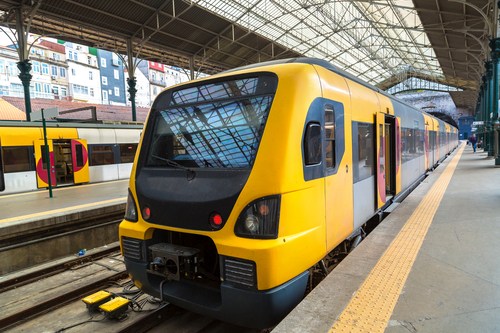
The trams are being developed and tested by Hyundai Rotem, which presented a concept study in April. About 36.5 million US dollars are being invested in the project, with the state-run Korea Railroad Research Institute (KKRI), the Korea Automotive Technology Institute (Katech) and the Ulsan Techpark among the partners. The government in Seoul wants to develop key technologies for hydrogen-powered trains together with domestic industry in order to offer the end products to foreign customers. Hydrogen-powered trams are believed to be the next generation of public transport. This could help advance South Korea’s plans for a hydrogen-based economy. A 1.9-kilometre light rail line without catenary is also being built in the southern port city of Busan. Construction work on this will begin this year, with completion scheduled for 2023. An extension of the line by another 3.3 kilometres is under discussion. Here, for example, the Hyundai Rotem fuel cell tram could be used.
Due to their environmentally friendly characteristics during operation, fuel cells are considered to be the powertrain and energy source of the next generation. The Hyundai Group, for example, is working on building up its value chain in the field of hydrogen with the development of cars, commercial vehicles, trains and ships with fuel cells or direct hydrogen powertrains. To this end, KRRI has entered into the development of locomotives with hydrogen engines that can travel at least 1,000 kilometres on one tank of fuel at a top speed of 150 km/h. The liquid hydrogen used as a fuel has the advantage over the gaseous phase that almost twice the amount of energy can be carried in the same volume. Disadvantages, however, are the complex cooling system and thick-walled tanks for insulation. The researchers at KRRI expect their technology to be ready for the market by 2025. In the second half of 2022, a prototype with hybrid powertrain, storage tanks and fast-charging function will be tested for this purpose.
South Korea is considered one of the most important and innovative industrial nations in the world. To gain market access to this highly technological country, products imported into South Korea must be tested and certified. The KC mark or KC certificate is roughly equivalent to the European CE mark and applies to 730 different products. MPR International GmbH has solid experience in Korea certification and competent local partners. We will be pleased to advise you without obligation about the scope and procedure of a Korea certification.
If you need assistance or have any questions regarding Korean certifications like KC, KC EMC, KCs or KCs for explosion safety products, feel free to contact us any time.
Tel.: +49-69-2713769259
Email: info@korea-certification.com
Urgent questions?
Please do not hesitate to contact us via chat. You will find the chat window at the bottom right of each page (if this is not visible, please check your browser settings).
For more information you can download our free brochure “Korea Certification Made Easy – The Booklet“.
Foreign companies show interest in wind power in South Korea
A growing number of globally significant names in wind power are entering the South Korean market. In addition, domestic power companies are increasing their cooperation with the foreign companies. Under the current circumstances, this will further increase the country’s dependence on foreign wind power. For example, Vesta, the world’s largest wind turbine manufacturer, signed a memorandum of understanding with Korea’s South-East Power and CS Wind last month. Orsted, the world’s largest producer of offshore wind power, had already established a subsidiary in South Korea two years ago and is now participating in a 1.6 GW wind power project in Incheon. The wind farm is scheduled to be commissioned in 2026. The Danish company invested the equivalent of US$6.75 billion in the project and is working on it together with POSCO. According to an agreement reached between the two companies, POSCO will supply steel parts to Orsted, and the electricity generated by wind power will be used to produce green hydrogen. Such steel parts and also other components can often be subject to KC certification in Korea, i.e. they must undergo product certification before they can be sold and used in the respective market.
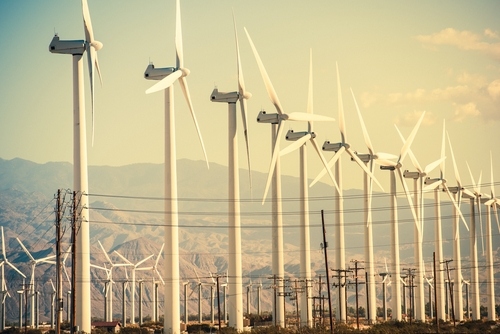
Overall, there is increasing interest from international companies in the growing market for wind power in South Korea. This is according to information and figures from the Ministry of Trade, Industry and Energy. Plans are in place to expand the country’s annual wind power capacity to 12 GW by 2030. This would put South Korea among the global top 5. To achieve this goal, the ministry is allocating the equivalent of $55.7 billion in funding for the construction of wind farms and $38.8 billion for a 20-year operating period. Meanwhile, the competitiveness of South Korea’s wind power industry has not yet reached a satisfactory level. Doosan Heavy Industries & Construction is working on developing an 8 MW wind turbine, and Unison is working on a 10 MW version. However, they cannot keep up with foreign companies, including Vestas. Their wind turbines generate 12 MW of power and are already in operation in Denmark, and Vestas is already working on a 15 MW turbine.
Currently, more than half of all turbines and parts used in the wind power sector consist of imported components. Vestas’ market share is 34.3 percent, while Siemens Gamesa’s share is 10 percent. Korean companies such as Unison and Doosan Heavy Industries & Construction stand at 15.4 and 13.4 percent market share, respectively. South Korea is considered one of the most important and innovative industrial nations in the world. Many products imported into South Korea have to be tested and certified in advance. MPR International GmbH recommends itself as a partner for your Korea certification. We gladly check for you without obligation if your products are subject to certification and create an attractive offer for you.
If you need assistance or have any questions regarding Korean certifications like KC, KC EMC, KCs or KCs for explosion safety products, feel free to contact us any time.
Tel.: +49-69-2713769259
Email: info@korea-certification.com
Urgent questions?
Please do not hesitate to contact us via chat. You will find the chat window at the bottom right of each page (if this is not visible, please check your browser settings).
SK Global Chemical to build South Korea’s largest plastic recycling plant
SK Group company SK Global Chemical is investing the equivalent of $510 million in Ulsan to build the country’s largest plastics recycling plant. The construction is seen as a signal to transform the previously petrochemical-based company into an environmentally friendly one. To launch the project, SK Global Chemical signed a memorandum of understanding (MOU) with the city of Ulsan on July 8, 2021. The subject of the agreement is to promote plastic recycling projects. The company plans to build a plastic recycling plant using pyrolysis and depolymerization processes on an area of 160,000 square meters in Ulsan’s Mipo National Industrial Complex by 2025. Pyrolysis and depolymerization are chemical processes for recycling plastic waste. The pyrolysis plant can process up to 100,000 tons of plastic waste annually and is being built in collaboration with U.S. company Brightmark. Commissioning is planned for 2024. The pyrolysis oil produced by the process can be used as a feedstock for certain petrochemical products. Machinery and components for related recycling facilities may require Korea certification in order to be sold and used in Korea.
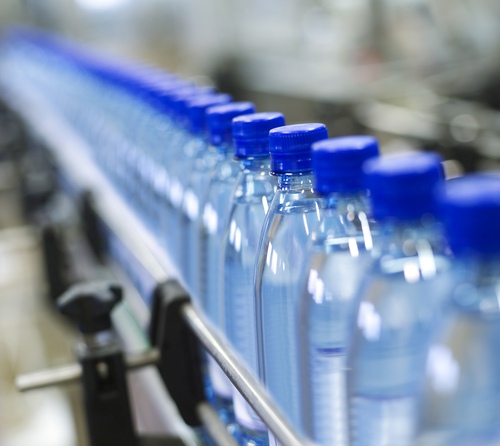
In addition, a polymerization plant is to be built that can process 84,000 tons of plastic waste per year. This plant is being built in collaboration with Loop Industries of Canada, a specialist in pyrolysis technology. The first part of the plant is to be built starting in 2023 and will be continuously expanded. For example, a recycling capacity of 900,000 tons is planned for 2025, and as much as 2.5 million tons for 2027. SK Global Chemical also plans to expand its recycling business to the entire Southeast Asia region. To this end, it recently invested the equivalent of $53 million for a 10 percent stake in Loop Industries. In return, SK Global Chemical received exclusive distribution rights for Loop Industries’ technology in Southeast Asia. Together, the two companies plan to build a total of four plants to process recycled PET in Asia by 2030, enabling more than 400,000 tons of PET waste to be recycled annually. The amount even exceeds the current 300,000 tons of annual PET waste from South Korea.
South Korea is considered one of the most important and innovative industrial nations in the world. Many products imported into South Korea have to be tested and certified in advance. MPR International GmbH recommends itself as a partner for your Korea certification. We gladly check for you without obligation if your products are subject to certification and create an attractive offer for you.
If you need assistance or have any questions regarding Korean certifications like KC, KC EMC, KCs or KCs for explosion safety products, feel free to contact us any time.
Tel.: +49-69-2713769259
Email: info@korea-certification.com
Urgent questions?
Please do not hesitate to contact us via chat. You will find the chat window at the bottom right of each page (if this is not visible, please check your browser settings).
For more information you can download our free brochure “Korea Certification Made Easy – The Booklet“.
Successful participation in the virtual Symposium on International Automotive Technology (SIAT) in India
From September 29 to October 01, 2021, the Symposium on International Automotive Technology (SIAT) took place in India with a variety of informative expert presentations around the topic “Redefining Mobility for the Future”.
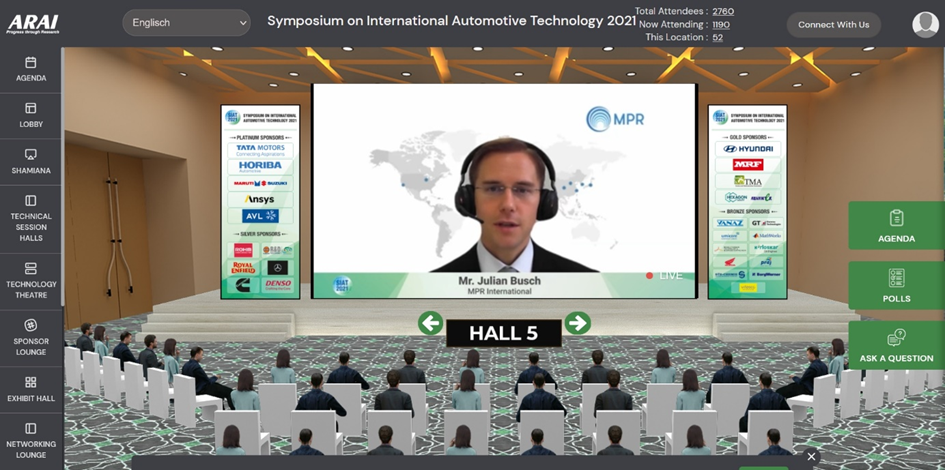
After the official opening, plenary sessions discussed a variety of topics for the future. Topics ranged from alternative energies, e-mobility, emission control, to the general challenges in the international certification market.
Julian Busch, Managing Director of MPR International from Frankfurt, gave an overview of the current challenges in the international certification market. He explained the various types of certifications, how they are applied worldwide in a comparable form and how they differ greatly nationally. In this context, the increasingly complex test requirements represent a major challenge for the manufacturers of vehicles and components.
Currently, the most important certifications for the Indian automotive market are AIS (Automotive Industry Standards) certification or a certification from the BIS (Bureau of Indian Standards). The product scope for BIS certification alone was expanded by 242 product groups last year. The Indian authorities plan to continue this trend.
Automotive manufacturers and Indian test centres alike benefited from the information provided at the seminars. The information is valuable since the India market is booming with projected growth into the foreseeable future making product certifications more relevant. Due to the ever-increasing complexity of regulations, it is also important for the local test infrastructure to stay up to date.
To obtain certification in India, domestic and foreign automotive manufacturers must meet the same requirements. For example, in most cases, a factory audit and product testing are required as part of the certification process for both domestic and foreign manufacturers. Some products even require more than one certification. Good preparation and knowledge of the current regulations are crucial for smooth and trouble-free trading.
We will be happy to advise you on certification in India like AIS, BIS, WPC, TEC or PESO and are always available to answer your questions.
Please do not hesitate to contact us for further details and consultation. You can contact us via e-mail, or call us (UK: +44 2071931135, Rest of Europe: +49 69 2713769261, US: +1 773 654-2673).
If you have any questions you can also use our chat-window in the bottom right. (Please check your browser settings if you can’t see the window)
You can also check out our free AIS-Brochure and BIS-Brochure which can be downloaded for free in PDF format.



